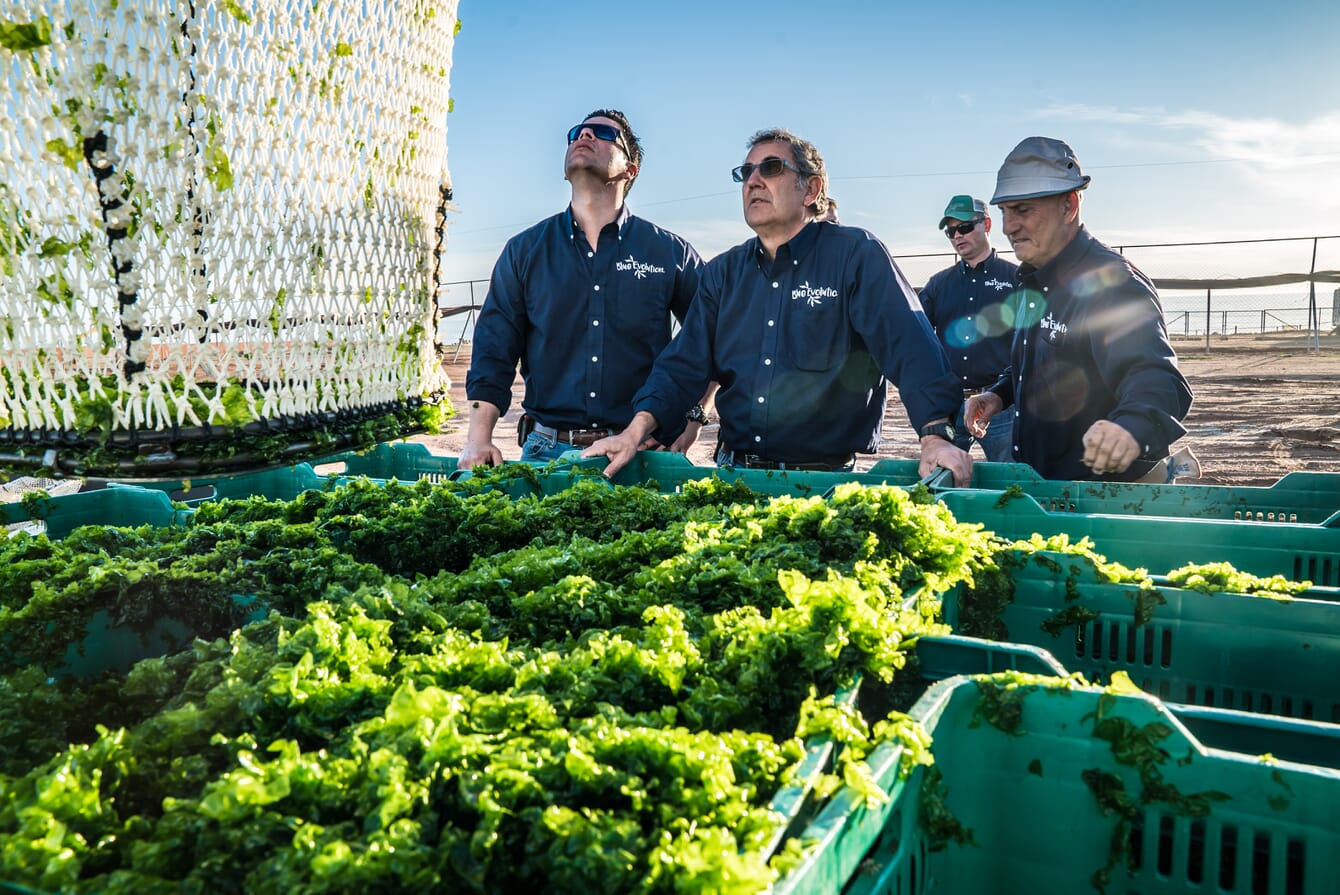
Blue Evolution built the first commercial seaweed operations in both Mexico (pictured) and Alaska.
Blue Evolution is a California-based company founded in 2013 which develops climate-smart seaweed supply chains for life science products and built the first commercial seaweed operations ever in both Mexico and Alaska. Meanwhile Blue Ocean Barns was first to market globally with a safe seaweed digestive aid. A small inclusion of the all-natural seaweed additive has been shown in published research and on-farm trials to safely eliminate more than 80 percent of cows' methane production without changing the taste of milk or meat.
To meet its objective of supplementing one million cows within four years, Blue Ocean Barns has contracted Blue Evolution to build out nursery and seaweed production system concepts which will inform its approach to production of Brominata beyond Hawaii. Future planned collaborations include Blue Evolution's staging farm and processing operations at its current aquaculture site in Baja California and scaling up production for Blue Ocean Barns.
“We have great respect for the Blue Ocean Barns team and mission. We believe that by supporting their commercialization and scale up, we can make climate history together. We want this project to grow quickly to keep up with the world’s emissions reduction goals,” said Beau Perry, CEO and founder of Blue Evolution in a press release.
Among the companies that have become Blue Ocean Barns partners are dairy pioneers Ben & Jerry’s, Clover Sonoma, and Straus Family Creamery. Earlier this year, the company was granted authorisation to sell Brominata in California by the state’s Department of Food and Agriculture. In addition, the United States Patent and Trademark Office allowed a plant patent for Blue Ocean Barns’ Brominata, the first ever such patent for a variety of algae or seaweed.
Methane is an especially potent greenhouse gas, produced naturally by cattle during the digestion of grass. The methane burps from one cow are equivalent to the greenhouse gasses emitted by one passenger car. When dairy and beef producers cut their methane emissions rapidly, they draw down methane that traps heat in the atmosphere, leading to lower climate temperatures




